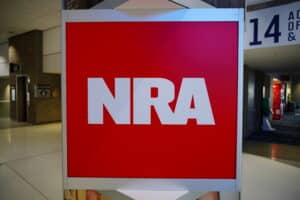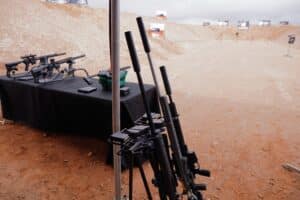We now know what the jury thinks of the corruption allegations leveled against the NRA and its leaders. On the big-ticket items, it found the group was in the wrong. The jurors held Wayne LaPierre most responsible, determining he did millions in damages to the group.
Contributing Writer Jake Fogleman and I wade through the details of the verdict on the podcast. The main holdings are pretty straightforward. But there are a few interesting details in there too.
The verdict might seem like the end of the NRA’s ordeal, but it’s not.
In fact, the end isn’t even that close. The group’s current leadership shows no sign of changing course, and the second phase of the trial, where the judge decides what remedies are appropriate, looks like it won’t happen for a while. I explain why that’s a big problem.
The NRA may be the biggest story of the week, but it’s not the only one. Jake dives into the recent trend of “ghost gun” settlements across the country. He looks at the thus-far successful tactic gun-control activists have used against a major homemade gun kit maker.
Plus, I look at a move by the Ninth Circuit that could signal a change of course in how it handles gun cases. And the lead lawyer on the case joins the podcast to explain what’s going on.
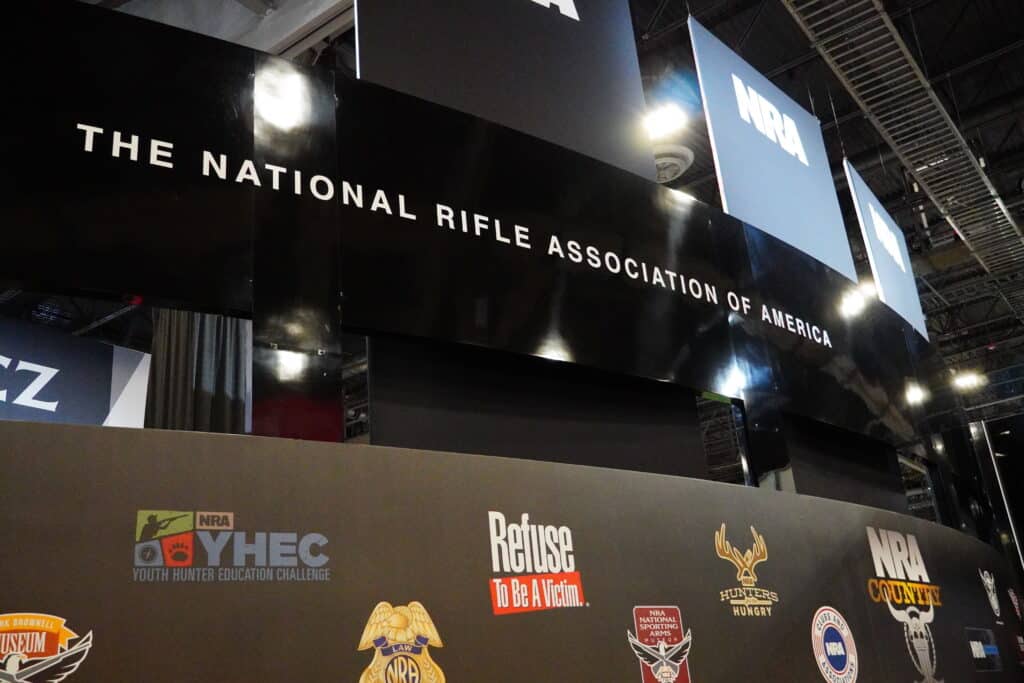
Analysis: The NRA in Limbo [Member Exclusive]
By Stephen Gutowski
A jury just ruled against the NRA in its corruption case, but it could be months before the final repercussions are handed down.
On Friday, six jurors returned to the Manhattan courtroom they’d called home for the previous seven weeks and entered their verdict in the civil case against the gun group and its leadership. It found the NRA did not properly safeguard its charitable assets and protect whistle-blowers. It determined longtime CEO Wayne LaPierre was liable for $5.4 million in damages and longtime Treasurer Woody Phillips was responsible for $2 million.
Those findings leave the defendants open to a number of punishments. LaPierre and Phillips could be barred from working at the NRA and forced to pay the group those millions. The organization could be forced into a series of internal reforms.
That’s exactly what New York Attorney General Letitia James (D.) wants.
After the verdict came down, she released a statement outlining the remedies she plans to seek from Judge Joel Cohen in the next phase of the case. She’s aiming to have the money repaid to the NRA. But, more significantly, she’s asking for two different overseers to be installed and report back to the court about the group’s spending and administration.
That could lead to a complete overhaul of the group’s leadership and bylaws.
“For years, Wayne LaPierre used charitable dollars to fund his lavish lifestyle, spending millions on luxury travel, expensive clothes, insider contracts, and other perks for himself and his family,” she said in a statement. “LaPierre and senior leaders at the NRA blatantly abused their positions and broke the law. But today, after years of rampant corruption and self-dealing, Wayne LaPierre and the NRA are finally being held accountable.”
This is, as you might imagine, the exact opposite of what the current NRA leadership wants. They argued James, who once called the group a “terrorist organization,” was politically motivated in her prosecution. And they noted Judge Cohen dismissed not only her attempt to dissolve the organization but also a swath of charges she’d brought. They also highlighted that the jury ultimately gave the green light to most of the related-party transactions at issue in the case and didn’t recommend the NRA pay any restitution as an organization.
Still, the current leadership, filled with longtime LaPierre allies, did their best to look past the bulk of the jury’s verdict and toward the next trial phase.
“We appreciate the service of the jury and the opportunity to present evidence about the positive direction of the NRA today,” NRA President Cotton said in a statement. “NRA members should be heartened by the NRA’s commitment to best practices, and we will continue to amplify our compliance record in the pivotal next phase of these proceedings.”
Judge Cohen will decide between these competing views based on the jury’s findings. If he sides with the AG, the NRA’s old guard will likely be wiped away. If not, the NRA leadership’s reaction to the verdict makes it very clear they don’t plan to change course.
Changing leadership and course as quickly as possible appears to have made a significant difference in whether major charities have been able to orchestrate turnarounds in the wake of spending scandals. But, even without a new direction, the NRA would undoubtedly benefit from getting out from under its storm clouds. Just moving on from all of this, win or lose, would allow them to refocus their efforts elsewhere.
Unfortunately, the second phase of the trial may not begin for quite a while. After the verdict, Judge Cohen said the next time he has room in his schedule for another multi-week trial isn’t until July. So, things probably won’t be finalized until August.
The NRA will be stuck in a state of limbo for about the next six months.
The group is lagging well behind pace in fundraising headed into the 2024 election. It needs to nearly triple its haul to reach 2020 spending levels and more than quadruple it to get back to 2016.
Replacing LaPierre as the head and face of the organization will probably be paramount in that effort. But it’s very hard to imagine anyone from outside the NRA taking that role until the legal situation is figured out.
The same is probably true for donors. Perhaps they can regain the trust and confidence of their former donors or bring in a substantial number of new ones after the ordeal is over. But it’s hard to see that happening amid a months-long legal haze.
So, we know the jury’s verdict now. But the NRA’s future is unresolved, and that won’t be changing very soon.
Podcast: NRA Loses Corruption Case [Member Early Access]
By Stephen Gutowski
On this week’s episode, we dive into the details of the verdict in the NRA’s corruption case.
As Contributing Writer Jake Fogleman and I discuss, the top-line takeaways are not good for the gun-rights group’s current and former leadership. The jury determined the NRA failed to properly safeguard its charitable assets or protect numerous whistle-blowers. It also found Wayne LaPierre diverted millions of dollars worth of NRA funds toward his personal expenses, which he will likely be forced to pay back.
The ruling leaves the nation’s largest gun group facing down the potential that Judge Joel Cohen could appoint financial and compliance overseers. That could wipe out the leadership that’s taken the NRA down this road in the first place. For the former leaders, such as LaPierre and once-treasurer Woody Phillips, they face the potential of bankruptcy as the jury found they collectively owe upwards of $6 million to the members they stole from.
Plus, lawyer Anna Barvir-Boone explains why a new step in the California gun case she’s working on could signal a change of course for the Ninth Circuit. There’s reason to think gun-rights cases could face less onerous legal fights on appeal in the future in the nation’s most liberal circuit.
You can listen to the show on your favorite podcasting app or by clicking here. Video of the episode is available on our YouTube channel. Reload Members get access on Sunday, as always. The show goes public on Monday.
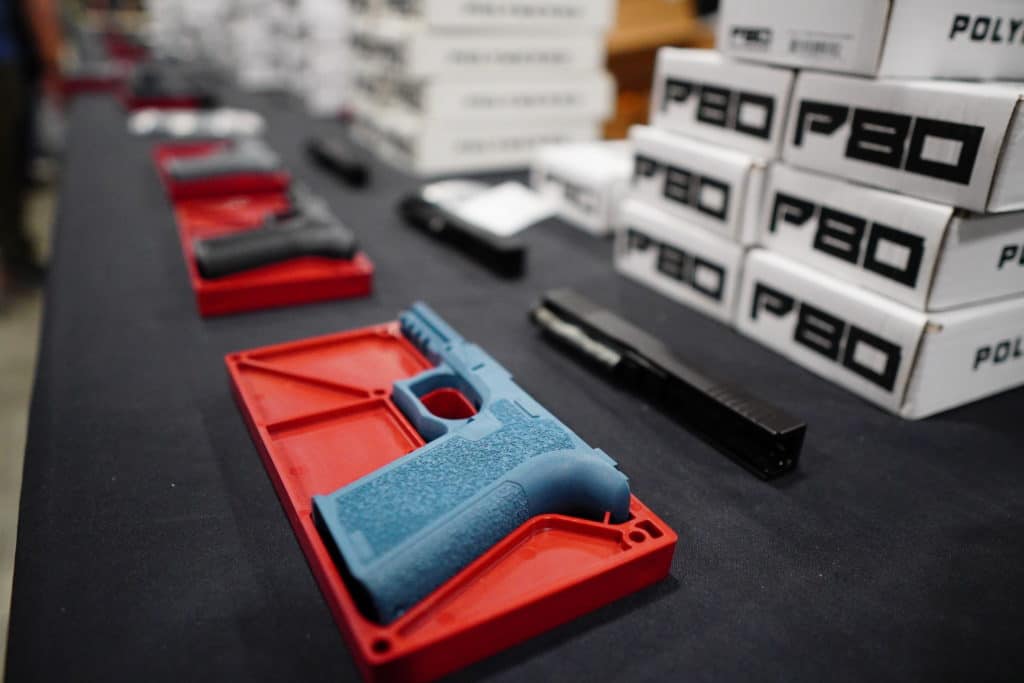
Analysis: The New Trend of Combatting ‘Ghost Guns’ Through Settlements [Member Exclusive]
By Jake Fogleman
Blue cities and gun-control advocates have had remarkable success in going after the nation’s most high-profile seller of homemade gun kits in court of late.
Most recently, Baltimore announced that Nevada-based unfinished firearm parts manufacturer Polymer80 had agreed to pay $1.2 million in a suit accusing the company of fueling gun violence in the city with its business practices. The settlement will not only permanently bar Polymer80 from marketing or selling any of its products to Maryland residents, but it will also require the company to provide Baltimore city officials with quarterly reports disclosing all of its sales to customers in the surrounding states like Pennsylvania, Delaware, Virginia, and West Virginia.
The city touted the settlement as “the most expansive and strictest” injunction secured against Polymer80 in the country, but it is certainly not the only one. Washington D.C. secured a $4 million judgment from the company in August 2022 after a judge found that it was “falsely and misleadingly” advertising that its products were legal in the District. That was followed by a $5 million settlement with Los Angeles last May that prohibits Polymer80 from selling its homemade gun kits in the state of California unless it first serializes them and conducts a background check.
All told, the homemade gun kit maker has now racked up more than $10 million in legal penalties in less than two years and has been barred from advertising and selling its products in three major US markets.
The trio of settlements marks a rare bright spot for gun-control advocates in their otherwise largely unsuccessful quest to use lawsuits to hold gun companies accountable for third-party criminal violence. What makes them more noteworthy is that many of the legal claims involved are similar to those often used to go after traditional firearm makers and sellers.
Up to this point, most lawsuits brought against traditional gun businesses by city politicians and gun-control groups have based their claims on the idea that they create a “public nuisance” through gun violence committed with the use of their products. Other common claims include the idea that a particular brand or firearm model’s advertising is designed to appeal to minors or criminals.
Aside from a landmark settlement secured by the families of Sandy Hook victims with bankrupt Remington’s insurers in 2022, those claims have borne little fruit. The federal Protection of Lawful Commerce in Arms Act (PLCAA), which generally precludes lawsuits against gun companies for crimes committed with their lawfully sold products, has tended to win out.
Unlike the previous attempts against traditional firearm businesses, however, those claims were enough to get Polymer80 to the negotiation table. For instance, the Los Angeles suit claimed Polymer80 fueled a “public nuisance” and engaged in “deceptive business practices through misleading advertising” about the legality of its products under California law.
“By marketing, selling and distributing ghost gun kits to California residents without serial numbers, without conducting background checks, and without appropriate safety features, Polymer80 has created a public nuisance, resulting in a significant threat to the public right of health and safety in public spaces,” the original complaint stated.
The Washington D.C. and Baltimore suits featured much of the same. Each jurisdiction has its own laws against possessing and selling unserialized firearms, and both were able to tie Polymer80’s business of selling the individual components used to assemble those firearms to individuals skirting those laws. That was enough to make Polymer80 feel the need to settle rather than fight it out in court.
That could prompt other cities with similar laws targeting unserialized “ghost guns” to get in on the action. If that happens, things could start to look like the pre-PLCAA days, where sue, settle, and repeat was the modus operandi for going after gun companies.
Success inevitably invites copycats. A fourth major city, Philadelphia, is already looking to secure the next major settlement against Polymer80 in a lawsuit filed against the company last summer in partnership with the gun-control group Giffords.
It’s unlikely to be the last.
Gun-control activists and big city politicians have seized on the opportunity. While they haven’t had much luck in piercing the PLCAA to go after traditional firearm sellers, the repeated settlements with Polymer80 present a more viable path for them to use lawsuits to do damage to the broader market for home-built firearms.
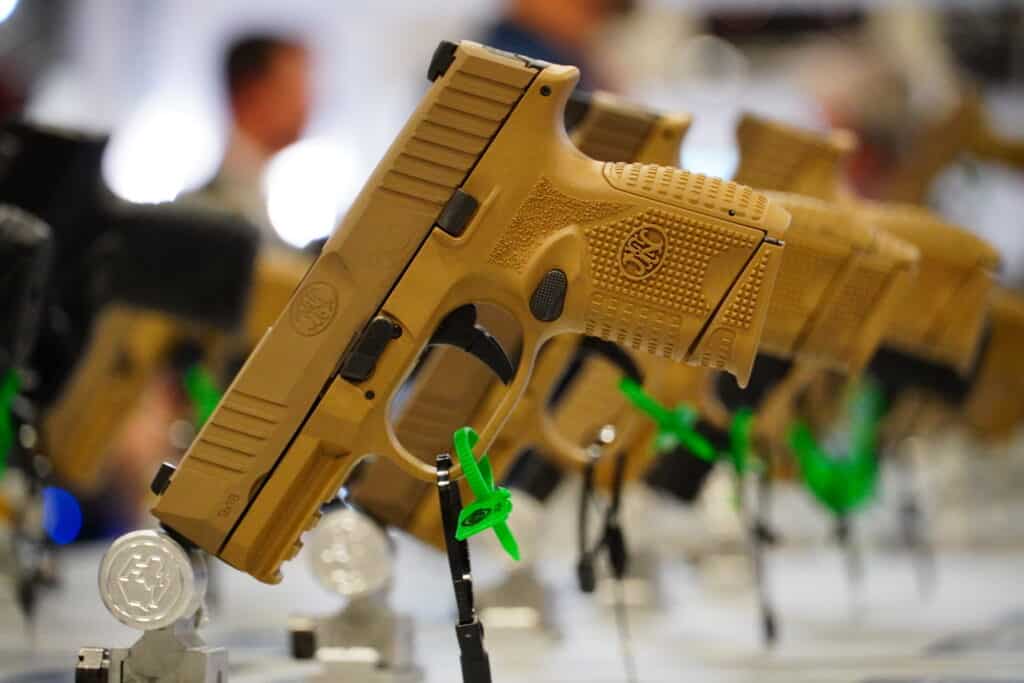
Analysis: Could Ninth Circuit Inaction Change Gun-Rights Plaintiffs’ Fortunes? [Member Exclusive]
By Stephen Gutowski
California failed to convince the Ninth Circuit to review a ruling against one of its gun laws this week. Was that a one-off decision, or could it be the start of a new trend?
On Tuesday, the appeals court rejected a request from Attorney General Rob Bonta (D.) to take Junior Sports Magazines Inc. v. Bonta to an en banc review. That would have likely resulted in the September ruling against California’s ban on marketing that could appeal to minors being overturned. Instead, not a single judge on the Ninth Circuit voted to take up the appeal.
“It seems like forever since the Ninth Circuit has refused to hear a gun case en banc,” Alan Gottlieb, head of plaintiff Second Amendment Foundation, told The Reload. “Hopefully, this is a new trend.”
If that trend does develop, it would be a significant boon to gun-rights plaintiffs.
Up to this point, it has been very difficult for advocates to get a lasting legal win. While there have been favorable rulings for them at the district and initial appeals court levels since 2008’s District of Columbia v. Heller, they are often fleeting. Decisions against gun laws in the liberal-leaning circuit have almost universally been taken all the way up to an en banc panel.
In that time, the Ninth Circuit did not deny a government request to take a Second Amendment case en banc. And it has always upheld the challenged gun restriction.
So, for gun-rights plaintiffs in the circuit to succeed, they’ve had to hope the government would either give up on defending a case or the Supreme Court takes up the issue. Those have both, of course, been long shots.
If the Ninth Circuit becomes more selective in taking gun cases en banc, that would probably raise the odds that more gun challenges end up succeeding.
A number of factors could drive the change. For one, there has been a great deal of criticism of the Ninth Circuit’s gun record and even dissension from judges on the court. Perhaps that has had an effect.
Then there’s the fallout from the Supreme Court’s New York State Rifle and Pistol Association v. Bruen ruling. Not only did that decision feature lengthy criticism of the standard the Ninth Circuit and others had used to uphold most gun law in the wake of Heller, but the Second Amendment standard it laid out opened the door for many more gun-rights challenges.
So, the Ninth Circuit may be forced to pick and choose which of the numerous new gun cases it will take into its limited en banc schedule. Or they may be looking only to take those they’re most confident won’t end in a Supreme Court reversal.
In Junior Sports Magazines Inc., a unanimous three-judge panel found the state’s gun ad ban unconstitutional.
“In view of its apparent lack of any limiting principles, § 22949.80 effectively constitutes a blanket restriction on firearm-product advertising,” Judge Kenneth K. Lee, a Donald Trump appointee, wrote for the panel. “A speech restriction of that scope is not constitutionally sound under any standard of review.”
Of course, as Judge Lee explains, that means the case is only partially about guns.
“This case is not about whether children can buy firearms. (They cannot under California law,)” he wrote. “Nor is this case about whether minors can legally use firearms. (California allows minors under adult supervision to possess and use firearms for hunting, target practice, and other activities.) And this case is not about whether California has tools to combat the scourge of youth gun violence. (It does.)”
“Rather, this case is about whether California can ban a truthful ad about firearms used legally by adults and minors—just because the ad “reasonably appears to be attractive to minors.”
So, that underlines a significant reason this en banc denial might not predict a new trend. Junior Sports Magazines Inc. is not a Second Amendment case. It’s a First Amendment case.
In fact, the day after the Ninth Circuit declined to take the case en banc, it accepted a different one. Unlike Junior Sports Magazines Inc., Teter v. Lopez is not a gun case. But it is a Second Amendment case.
“Because the possession of butterfly knives is conduct protected by the plain text of the Second Amendment, and because Hawaii has not demonstrated that its ban on butterfly knives is consistent with this Nation’s historical tradition of regulating arms, we conclude that section 134-53(a) violates Plaintiffs’ Second Amendment rights,” Judge Carlos Bea, a George W. Bush appointee, wrote on behalf of the unanimous panel.
The Ninth Circuit now appears to be on the path toward reversing another pro-gun ruling right after it let another one stand. Junior Sports Magazines Inc. opens the possibility that gun-rights activists will have more success in the most liberal circuit in the country. Teter should temper those same activists’ hopes, though.
That’s it for now.
I’ll talk to you all again soon.
Thanks,
Stephen Gutowski
Founder
The Reload




